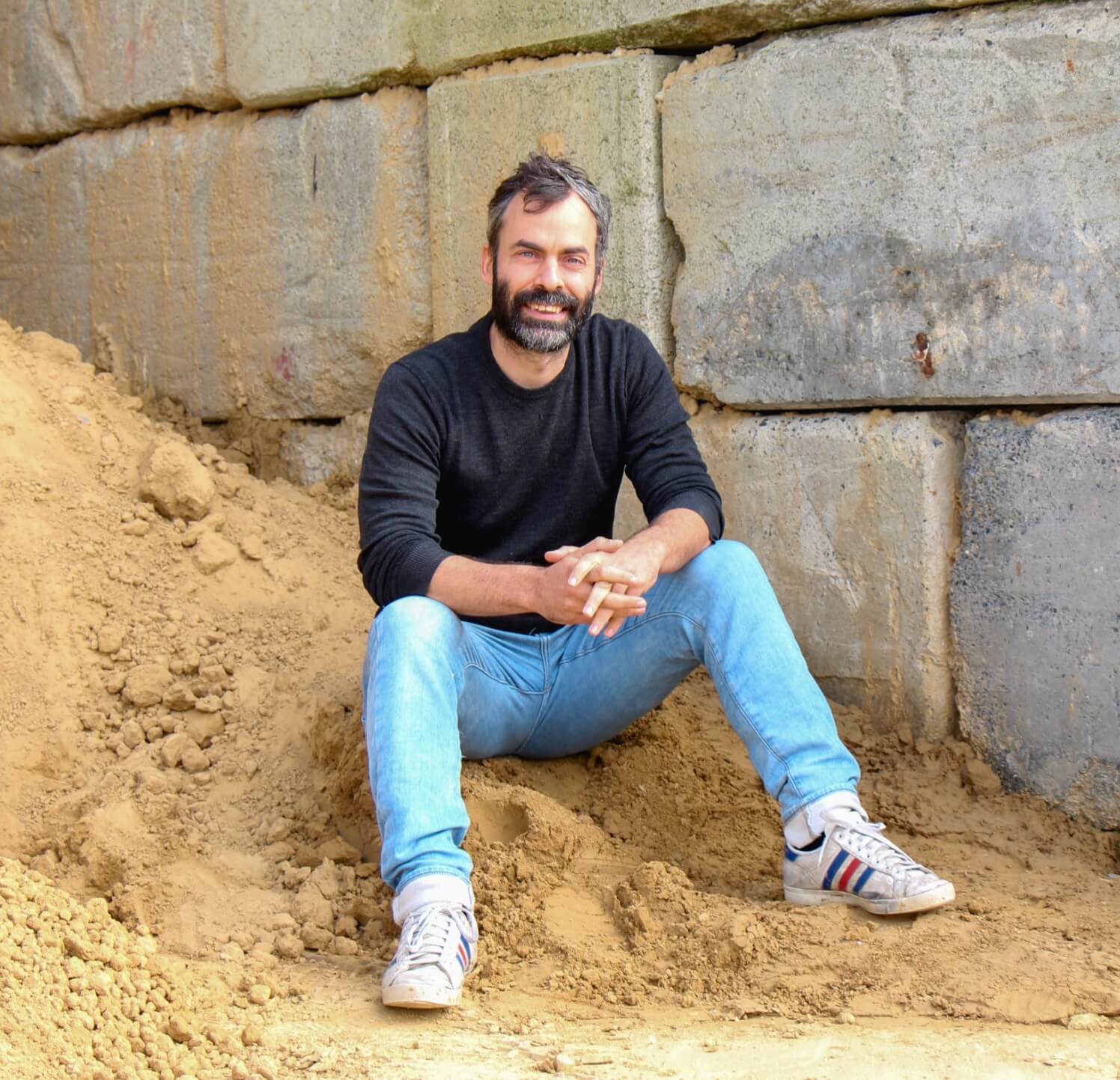Thanks to the Erasmus for Young Entrepreneurs programme, entrepreneurs in Brussels have the opportunity to operate alongside another European company for between one and six months. This is how the start-up BC materials has already received enthusiasts from across the continent many times.
While Belgians may claim they are born 'with a brick in the stomach', as far as BC materials is concerned, this proverb should from now on refer to a clay brick. The Brussels start-up is a spin-off from the architectural office BC architects and is aiming to make the construction sector more sustainable in a revolutionary manner.
‘In Burundi, we saw how new construction materials were being made from extracted earth,’ says Anton Maertens. ‘By sifting and drying it, then mixing it, you can produce clay plaster, for example. It seems like normal plaster, but is better for the environment. The same applies for clay bricks. In contrast to standard bricks, you don't make them by heating them, but by pressing them. These are great bricks for making interior walls from. When you know that 37 million tons of earth are extracted in Belgium every year, that means we can reuse materials while producing in a more ecological way.’

Fans all across Europe
It is no coincidence, then, that BC materials won the Bloom Award from hub.brussels in 2023. Through hub.brussels, the team was put in touch with the people behind Erasmus for Young Entrepreneurs, a project that allows prospective entrepreneurs to spend several months with a European company.
And in the case of BC materials, there are definitely people interested. When the start-up was launched in 2019, it produced 50 tons of material – last year, that was as much as 2,000 tons. This makes the company an example to many in the sector, and it has social media followers from all across the world.
‘We've offered ourselves as a host for the Erasmus programme, as the exchanges seemed very interesting for both ourselves and the participants,’ says Maertens. ‘In recent years, we'd already had several people come along. They can be a fly on the wall with us, developing their business case as such.’
The ideal training school
One of them was Pepe, who came from Catalonia and spent some time with the plaster production. ‘Partly because he helped produce clay plasters with us, he's since started applying clay plaster in projects in Barcelona. It's nice to let people try all manner of things, as what we do is quite complex. That makes six months the ideal length for such an exchange, as we overwhelm visitors with mountains of information. We do workshops and get to work in terms of R&D together. We also systematically have lunch together: eating together creates a good atmosphere. Pepe makes a fantastic paella, by the way – our whole team can vouch for that.’
Another participant was Farah, who comes from France and has Burundian roots. ‘She was studying architecture and found the atmosphere in Brussels around the circular economy very interesting. Her interests mainly lie in photography and social media. We got on so well that we took her on to support us in July.’
A different view
Not only do the visitors learn from BC materials – it gains from this as well. Maertens: ‘We sometimes get a bit too bogged down in our own matters, meaning it's great when someone looks at our projects with a fresh view. Such an outsider sometimes appreciates things we're no longer seeing. Erasmus for Young Entrepreneurs is an external view that you bring in, which can provide a new dynamic in the team.’
Interested in becoming a host entrepreneur?
Would you like to mentor and inspire a young entrepreneur? Or benefit from complementary skills or knowledge? Read this article to learn all about the program, and don’t hesitate to apply by contacting hub.info, the contact point for this program in Brussels, at this specific email address: eye@hub.brussels.
